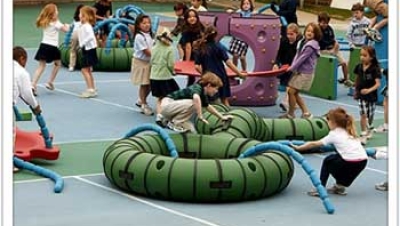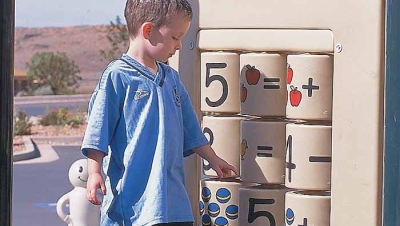Five Common Errors Parents Are Making When Studying with Their Kids
You're trying! You really are! Everyone wants what is best for their kids, especially when it comes to school. But (probably unbeknownst to you) there are a few things you may be doing that will almost ensure that your kid never wants your help again when it comes to study time.
Check out five common errors parents are making when studying with their kids. Any of these sound familiar?
Micromanage
The Problem: Your kid has an essay due tomorrow and she isn't a good writer. She needs to get a good grade on this thing or she risks moving even further down the grading scale. You jump in to help and before you know it, you're speaking and she's writing down every word you say.
Fix It: It's tempting to micromanage your kid's study session/project/essay. It's easy for you, and your kid struggles so much! But the goal is for your child to learn, not just earn a good grade. Offer advice. Direct questions. Offer to read the rough draft and offer insights when possible. But whatever you do, let your child do the work by himself or herself.
Become Exasperated
The Problem: You know the junior knows the answer to the question, and frankly, it doesn't make any sense that he isn't getting it. Or she won't sit still. Or he keeps shrugging and asking when he can be done.
SIGH HEAVILY. Roll your eyes. Tell your kid to "Focus!"
Sound familiar? When your kid isn't focused or doesn't seem to care and you're really trying to help, it's easy to become exasperated during a study session.
Fix It: Set your study session up ahead of time with clear rules so your kid knows 1). How long it will last 2). The goals you need to accomplish 3). The roles each of you will play. For example, if your second grader needs help preparing for a Social Studies test, these could be your parameters: 1) 20 minutes 2). Fill out questions 1-10 in the study packet 3). You'll ask the study questions and he'll write them down on a sheet of paper
When you give your kid clear goals, he or she is less likely to fidget or become bored and you're more likely to keep your cool.
Bully
The Problem: I know that "bully" is a hot button word, but there's just no better way to say it. If you're calling your kid names or speaking to him or her in a way that causes personal emotional pain, then you're bullying your child during your study session and it needs to stop. Today. There are common things parents say during studying that fit the definition of bullying and you probably don't even realize it! If you're saying any of these, nix them from your vocab today:
- What's wrong with you?
- Why would you even think that?
- Not even close. You're way off.
- You're not thinking. THINK.
Fix It: Instead of jumping down your kid's throat for missing a question, try soft, gentle encouragement.
- This is a tough one, I know!
- You can do it. Give it another shot.
- Nope, that's not correct. Let's see if we can find it in your notes somewhere.
- Why don't you think about it a little more and we'll get back to that one.
Get On Your Phone
The Problem: You're too darn distracted by your phone when you're supposed to be studying with your kid. You're fielding emails from your boss, you're Facebooking your kid's hilarious answers, you're texting your best friend to ask questions, and you're Pinteresting the entire thing for posterity's sake.
Fix It: You know what your kid needs? Your undivided attention. Get off your phone when you're studying with your kid. He or she needs to know that you're 100% there. Put your phone on top of the fridge and set it to vibrate. Or (horror of horrors) shut it off. Your kid will never trust you to help him or her if your mind is a million miles away in Instagram land.
Give False Praise
The Problem: In your efforts to boost your child's self-esteem, you've gone overboard. Everything is "Wonderful!" Your kid spends six seconds on his poster project and you exclaim, "That's some amazing artwork!" Your child writes a sentence in his essay and you squeal with delight.
Knock it off. You're turning your child into someone who believes that the most meager of efforts earns a pat on the back.
Fix It: Give succinct, accurate praise for jobs well done when you're studying with your child. Teach your child to work hard. Show your child that with focus and effort comes reward. By all means, boost your child's self-esteem when he or she has earned it. Your praise will be so much more meaningful then!

















